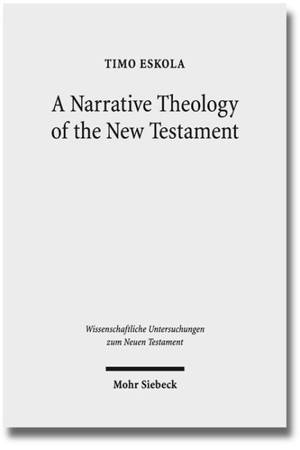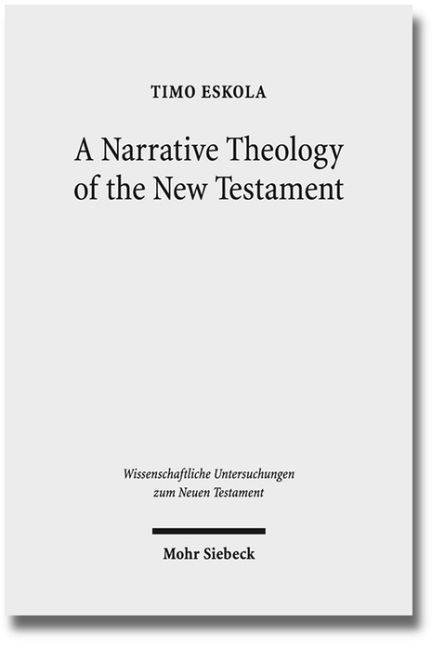
- Afhalen na 1 uur in een winkel met voorraad
- Gratis thuislevering in België vanaf € 30
- Ruim aanbod met 7 miljoen producten
- Afhalen na 1 uur in een winkel met voorraad
- Gratis thuislevering in België vanaf € 30
- Ruim aanbod met 7 miljoen producten
Zoeken
A Narrative Theology of the New Testament
Exploring the Metanarrative of Exile and Restoration
Timo Eskola
Hardcover | Engels
€ 281,95
+ 563 punten
Omschrijving
Focusing on the metanarrative of exile and restoration Timo Eskola claims that a post-liberal, narrative New Testament theology is both consistent and explanative. Combining a post-New Quest perspective on Jesus with an eschatological reading of Paul, the author states that Jesus' temple criticism aims at restoration eschatology. Jesus starts a priestly community that expects God's jubilee to begin with Jesus' work, and proceed with the preaching of the new gospel. The reception of this message in the post-Easter church results in resurrection Christology that proclaims Jesus' Davidic kingship on God's throne of glory. Both Paul and Jewish Christian teachers later present Christ's community as a new temple where believers serve the Lord as priests of the new covenant. Furthermore, restoration eschatology provides a new basis for understanding Paul's contrast with the words of the law, and his teaching of justification.
Specificaties
Betrokkenen
- Auteur(s):
- Uitgeverij:
Inhoud
- Aantal bladzijden:
- 477
- Taal:
- Engels
Eigenschappen
- Productcode (EAN):
- 9783161540127
- Verschijningsdatum:
- 1/07/2015
- Uitvoering:
- Hardcover
- Formaat:
- Genaaid
- Afmetingen:
- 168 mm x 231 mm
- Gewicht:
- 458 g

Alleen bij Standaard Boekhandel
+ 563 punten op je klantenkaart van Standaard Boekhandel
Beoordelingen
We publiceren alleen reviews die voldoen aan de voorwaarden voor reviews. Bekijk onze voorwaarden voor reviews.








